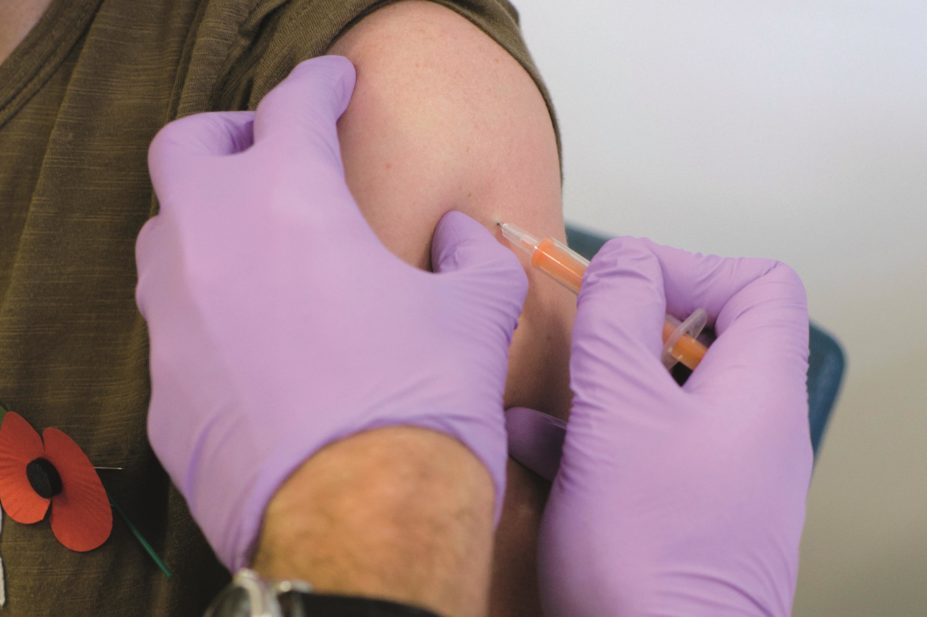
Stephen Barnes/Medical / Alamy
An immune link has been established between narcolepsy and vaccination with GlaxoSmithKline’s influenza A H1N1 vaccine (Pandemrix) that was used during the 2009 global influenza pandemic, according to a study published in Science Translational M
edicine
[1]
.
During the pandemic, Pandemrix was distributed to more than 30.5 million people in Europe and within a year cases of the sleep disorder associated with the vaccine had emerged. By January 2015, more than 1,300 cases had been reported to the European Medicines Agency’s adverse drug reaction EudraVigilance database. In children, Sweden reported 4.2 cases per 100,000 in 2011; Ireland reported 5.8 cases per 100,000 in 2012; and England reported 9.9 cases per 100,000 in 2013.
However, no increased risk of narcolepsy was associated with another influenza A H1N1 vaccine, Novartis’ Focetria, where 25 million doses were administered in Europe and Latin America.
When the protein composition of the vaccines was compared, researchers found that Pandemrix contained 72.7% more influenza nucleoprotein (NP) than Focetria. A portion of the influenza NP shares protein residues with hypocretin receptor 2, which has been linked to narcolepsy.
“Antibodies in the sera of certain individuals exposed to a protein in the influenza A virus may move across the blood-brain barrier and cross-react with human hypocretin receptor 2 on the surface of neurons; a disruption which results in narcolepsy,” says the study’s lead author Syed Sohail Ahmed, now global head of clinical sciences R&D at GlaxoSmithKline, but previously an employee of Novartis. “It seems ever more likely to be proven that narcolepsy can be viewed as an autoimmune disease.”
Ahmed warns that for people who are genetically susceptible to the disease, there is a greater risk of developing narcolepsy through exposure to natural influenza virus infection than from vaccination.
In a comment piece[2]
in the same issue of the journal, Hartmut Wekerle of the Max-Planck Institute of Neurobiology says the implications of the research are important but specific. “The findings show that in rare cases, vaccines can accidentally trigger autoimmune-like brain disease,” he says. “The anti-H1N1 vaccine Pandemrix appears to make the case, stimulating in some individuals the production of hypocretin receptor cross-binding antibodies as a result of its high content of influenza NP.”
A Public Health England spokesperson says the study offers insight into possible biological mechanisms that might underlie the association between Pandemrix and narcolepsy highlighted in previous research.
- This story was updated on 10 July 2015.
References
[1] Ahmed SS, Volkmuth W, Duca J et al. Antibodies to influenza nucleoprotein cross-react with human hypocretin receptor 2. Science Translational Medicine 2015;7(294):294ra105.
[2] Wekerle H. Vaccination and narcolepsy: Immune link found? Science Translational Medicine 2015;7(294): 294fs27.


